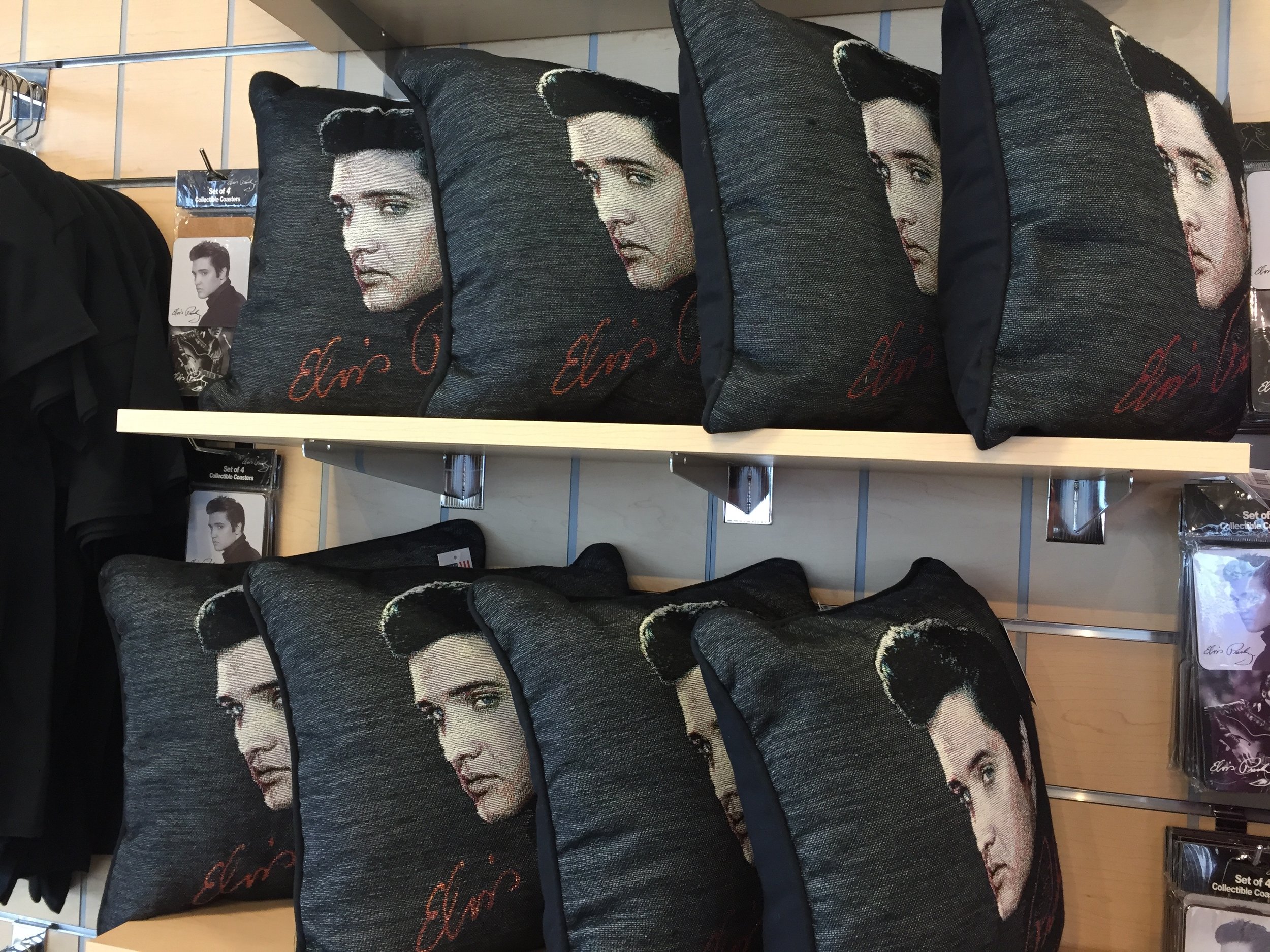From Graceland to MAGA
The politics of nostalgia
By Rick Holmes
July 20, 2018
Memphis, Tenn. – Elvis left the building 40 years ago, but the crowds still come to Graceland.
They pay $38.75 to tour the home of the man who, generations ago, was crowned the king of rock ‘n’ roll, and another $10 for parking. For $43.75, you also get to see his private planes, his car collection and a “special jumpsuit display.”
That’s a lot of cash to bask in the glow of a pop star who died before three-quarters of current Americans were born. I would have thought Graceland’s appeal would be shrinking along with the ranks of those of us old enough to remember when he was young and alive. But Graceland is still going strong, with more than 600,000 visitors a year – more than any other residence except the White House.
The folks in line with me came in all ages, and they came from all over. We filed past windows looking into Elvis’ TV room, with three vintage sets beneath a mirrored ceiling, the “jungle room” where he hung out with his entourage, and long glass cases of memorabilia: his turquoise-handled handgun, badges and honorary memberships in various anti-drug task forces (ironic, given the prescription drug abuse that marked his later years), likenesses of the skinny young pop star (whose waistline later fought a losing battle with bacon) and souvenirs of all sorts. We filed quietly past his grave, where Elvis rests between his mother and father.
I found myself wondering, what draws all these people here?
It’s not about the music. Elvis had a rich voice and an instinct for bringing black music – gospel and blues – to white audiences. But if you want to explore the seminal role Memphis played in American musical history, visit the Sun Records studio, the Stax Museum of American Soul Music, and Beale Street. Graceland has little to say about Elvis’ music, but much about his celebrity, his lifestyle and his times.
Nostalgia is a powerful thing. We all seem to long for the good old days, when life was simple, when families were secure, when the future looked bright. Of course we were kids back then, and a child’s world is simpler, more secure and brimming with possibility. Nostalgia will always find an audience with people who remember fondly the times during which they grew up.
But there’s something special about the 1950s and 1960s. Somehow that age evokes a golden childhood in people who weren’t around to experience it. It’s become America’s childhood, etched in our memories not by personal experience, but by movies and old TV shows.
We see the ‘50s through the TV sitcoms of the era, in which every family was white, wholesome and complete, when moms stayed home and dads brought home paychecks sufficient to cover a new world of consumer goods.
The high school stereotypes of the ‘50s only roamed the planet for a few short years, but they have lived on for decades, through shows like “Happy Days” and movies like “American Grafitti” and “Grease.” There are millennials nostalgic for the ‘50s because they have fond memories of performing “Grease” with their high school theater group back in the ‘90s. Even today there are places where middle school kids attend “sock hops,” the boys with greased hair and the girls in poodle skirts.
But memories can deceive, especially those filtered through pop culture. A recent Pew Global Attitudes survey asked people in 38 nations whether life in their countries is better or worse today than it was 50 years ago. In many countries – Vietnam, Japan, Germany, Canada, Israel, the United Kingdom – most people said life is better today than in 1968. But in the U.S., 41 percent said life was better 50 years ago, while just 38 percent said it was worse.
As I remember it, 1968 was a horrible year. Martin Luther King and Bobby Kennedy were assassinated. America’s cities erupted in riots. The generation gap yawned, with parents and children at odds over drugs, sex, politics and haircuts. The country was bogged down in a losing war in Vietnam. Fighting in the streets of Chicago upstaged the Democratic Convention, then Nixon was elected. For millions who didn’t look like those white suburban families pictured in TV sitcoms, the American dream was nowhere in sight.
For millions of Americans, though, those were the good old days, the time when Elvis was king and America was great. Where nostalgia meets politics we find a slogan that is as much a wish as a promise, one that I can imagine hanging over the exit gates at Graceland: Make America Great Again.
Rick Holmes can be reached at rick@rickholmes.net. You can follow his journey at www.rickholmes.net. Like him on Facebook at Holmes & Co, on follow him on Twitter @HolmesAndCo.





